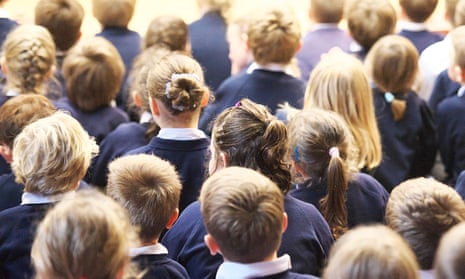Britain’s schoolchildren are suffering from an epidemic of anxiety, depression and suicidal thoughts, yet barely half get the NHS treatment they need, teachers say.
Almost four in five (78%) teachers have seen a pupil struggle with a mental health problem in the past year, with one in seven (14%) cases involving suicidal thoughts or behaviour.
Anxiety is the most common problem, with two-thirds of the 300 teachers surveyed by the mental health charity stem4 having come across a young person at their school dealing with the condition in the past year. Significant minorities of teachers have also encountered at least one pupil with depression (45%), an eating disorder such as anorexia (30%), self-harming (28%) or addiction (10%).
However, many of the teachers – who work in primary and secondary schools and colleges across the UK – say pupils find it hard to get help from the NHS child and adolescent mental health (CAMHS) services. More than a third (36%) of participants said they had feared that a young person might come to harm while waiting to receive treatment.
Less than half (46%) said students were able to access the CAMHS care they needed to help recover, and only 19% said those children receiving treatment were getting the help they needed. One in five (22%) said pupils had to wait at least five months to start treatment. CAMHS services are struggling to cope with the fast-growing demand for support from troubled under-18s. Consultant clinical psychologist Dr Nihara Krause, the chief executive of stem4, will unveil the full findings at a conference in London this week for education professionals concerned at the rise in the number of pupils struggling with mental ill-health. Four in 10 (40%) teachers believe the need for care has grown in the past year while 52% believe family difficulties are contributing to students’ troubles, and 41% identified exam stress and bullying as triggers.
“Schools face huge challenges in dealing with mental health issues in their students, and teachers are on the front line. They witness first-hand the devastating impact of pressures such as exam anxiety, bullying, and family problems. The consequences of these problems are serious, often life-threatening, and teachers are desperate to help,” said Krause.
“Yet at a time when the need for preventative, early intervention and specialist services are soaring, schools are finding it increasingly difficult to provide the help their pupils need. There’s an urgent need for better support mechanisms in schools, as well as decent funding for the range of mental health services children and young people need.”
Ministers unveiled a long-awaited green paper on reducing mental ill-health among children and young people last year. But its proposals, which hand schools a key role, were recently criticised by MPs on the Commons health and social care and education select committees as lacking ambition.
A government spokesperson said: “Making sure children and young people have the right support when they need it is vital. That’s why we are giving an extra £300m to provide more support linked to schools, including new support teams to provide quicker support to children.
“We recognise there is more to do – we’ve extended our schools and NHS link pilot to deliver training in 20 more areas of the country this year to improve links between 1,200 schools and their local specialist mental health services.”
